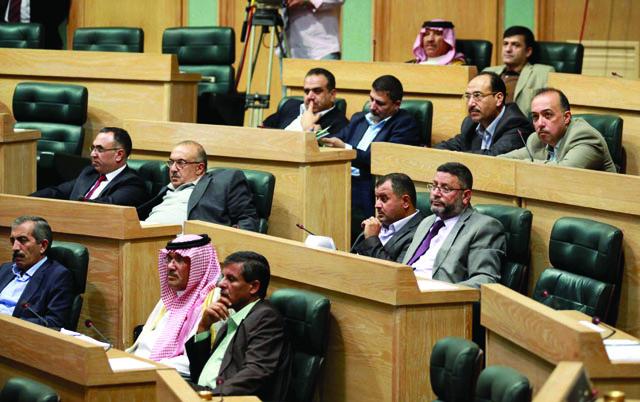You are here
Private sector leaders protest exclusion from partnership council
By Omar Obeidat - Jul 09,2014 - Last updated at Jul 09,2014
AMMAN – Private sector representatives criticised the Lower House for excluding the sector from a special council to oversee the public-private partnership.
On Sunday, lawmakers started deliberations over the draft public-private partnership law, endorsing an article that denies the private sector the right to be part of a special council to ensure the bill’s implementation.
The council, as preferred by MPs, will be headed by the prime minister and will include the ministers of finance, trade and planning, in addition to another minister to be named by the premier.
Under the bill, the council should also include the governor of the Central Bank of Jordan and the director of the public-private partnership unit.
Previously, the draft law stipulated that the presidents of the Jordan Chamber of Commerce and the Jordan Chamber of Industry serve as members of the nine-seat council.
Commenting on the House’s move, president of the Amman Chamber of Commerce, Issa Murad, sarcastically suggested the name of the legislation should be changed into inter-government partnership law.
Murad said that the government and the Lower House “do not recognise the role of the private sector in the Kingdom’s economy, accusing the government of “not even trying” to defend the need to have representatives from the private sector on board.
Murad told The Jordan Times over the phone that private sector representatives met with the House Investment Committee and agreed to allocate two seats for the sector.
He indicated that the government did not include private sector representatives in the version it referred to the Lower House and suggested the government “does not seek a genuine partnership with the private sector”.
“We don’t want the government to consider us as partners but it should at least consult us before making economic or business decisions,” Murad said.
Musa Saket, board member of the Jordan Chamber of Industry, said there has never been a true partnership between the government and the private sector, criticising the draft law because “it is meant to regulate the implementation of public-private projects only”.
He defined “partnership” in this sense as a private sector engaged in all decision-making processes relating to economic issues, adding that this type of partnership has never existed in Jordan.
“Officials keep talking about public-private partnership but the notion that the government seeks real partnership with business is only a mirage,” Saket said.
The industrialist said that he was not surprised by the MPs’ decision to exclude the sector from the government’s special council, adding that even if lawmakers approved the article specifying the private sector’s representation in the council, it would be a hollow and perfunctory act.
“Two seats out of nine is nothing and have no weight,” he said, adding that the private sector should be considered a real partner simply because it is a key source of revenue for the Treasury.
Tax revenues from the industrial sector alone reach around JD1 billion a year, he noted.
The Jordan Times attempted to contact government officials but was unable to reach anyone for comment.
Related Articles
The Lower House on Sunday started deliberations over the draft public-private partnership law, endorsing an article that denies the private sector the right to be part of a special council to ensure the bill's implementation.
AMMAN — The Lower House on Sunday began its deliberations over the draft law concerning public-private sector partnership.The draft law stip
AMMAN — The Lower House on Tuesday continued its deliberations over the draft law concerning public-private sector partnership.Prime Ministe















